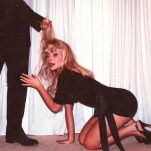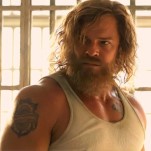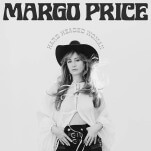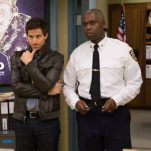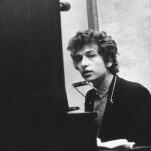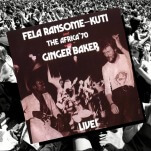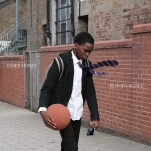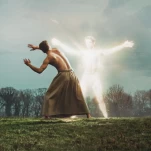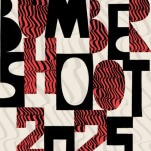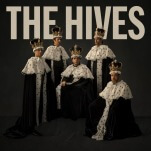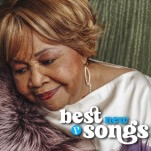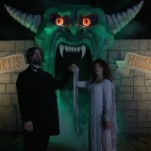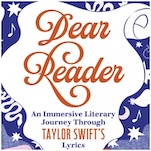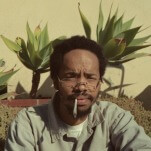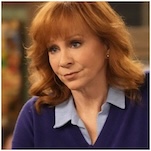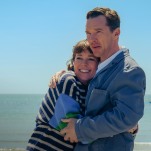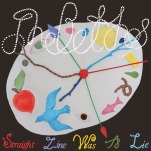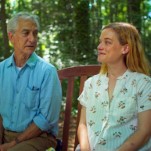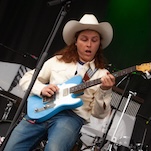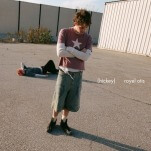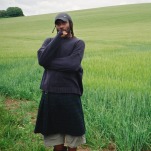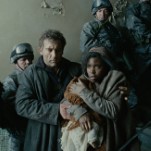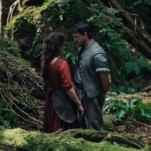The 50 Best Albums of 2010
 30. She & Him: Volume Two [Merge]
30. She & Him: Volume Two [Merge]
She & Him’s debut was a simple affair. Zooey Deschanel’s homespun grace and M. Ward’s unobtrusive production made for a winning combination—which means they risked a lot by making a followup album as complex and ambitious as this one. On Volume Two, swirling strings and lush backing vocals underscore Deschanel’s increasingly sophisticated songwriting. She plays the dewy-eyed ingénue a bit too faithfully at times, but there is no denying her legitimacy as a tunesmith, divvying her set between bouncy piano-pop, folk-flavored sing-alongs and orchestral anthems. In lesser hands, the American Graffiti-styled themes of star-crossed lovers and summer nights would drown in their own sincerity. Here, they provide a pleasant escape to a mythical America of endless horizons and youthful resilience—not such a bad place to be in 2010.—Matt Fink
 29. Freelance Whales: Weathervanes [Frenchkiss/Mom + Pop Records]
29. Freelance Whales: Weathervanes [Frenchkiss/Mom + Pop Records]
When Freelance Whales frontman Judah Dadone was growing up on 20 acres of woods outside Wilmington, Del., his part-Cherokee nanny told him that horses and dogs—and sometimes kids—could see spirits. By age six, he began to make room for the ghost of a young girl he sensed living in his house. These memories, along with bits of dream journaling, weave their way loosely through Weathervanes, Freelance Whales’ debut LP. A few years ago, Brooklyn-based Dadone began gathering Weathervanes’ odd collection of instruments—a banjo from his stepfather, a harmonium from India, a water phone from the Lower East Side—and then used Craigslist to find bandmates from across the city to play them all. The album captures that same whimsy with enough layers of peculiar instrumentation to make Sufjan Stevens jealous.—Josh Jackson
 28. Laura Marling: I Speak Because I Can [Astralwerks]
28. Laura Marling: I Speak Because I Can [Astralwerks]
Laura Marling had just turned 18 when she released her 2008 debut, Alas, I Cannot Swim, but it seemed like she’d already lived four or five lifetimes. By then, she had somehow digested the entire canon of British folk music along with her guitar lessons, in the process becoming world-weary enough to write lines like “The gods that he believes never fail to disappoint me” and “Don’t cry child, you’ve got so much more to live for / Don’t cry child, you’ve got something I would die for.” After touring the globe and being touted as the young queen of a new-folk revival, she made yet another gorgeous, melancholy, old-souled record. Despite its uncanny emotional weight, Alas has its moments of glittering girlishness and sounds at times like it was recorded in an upstairs bedroom at her parents’ house. I Speak Because I Can trades in references to broken dolls for tales of real live babies found in the forest and the yearning for a “Tap at my Window,” for the love of a “Rambling Man.” Fellow new-folk vanguards Mumford & Sons reprise their occasional role as Marling’s backup band, providing urgent, dirty-fingernailed accompaniment—banjos, shuddering organ and occasional brotherly backing vocals—to her lovely, blustery voice and pace-setting guitar.—Rachael Maddux
 27. Vampire Weekend: Contra [XL]
27. Vampire Weekend: Contra [XL]
Vampire Weekend’s debut cartwheeled gleefully from one infectious musical idea to the next, seducing listeners with a syrupy-sweet cocktail of Afro-pop, squeaky-clean ’60s surf rock and harpsichord passages that nodded at Mark Mothersbaugh’s playful compositions on Wes Anderson soundtracks. It was hard to listen to that first batch of tunes without sensing vast stores of glittering pop left to mine in the endlessly forking creative arteries beneath the band’s goofy, cardigan-wrapped exterior. On their second LP, the youngsters didn’t disappoint. Contra opener “Horchata” displays a caliber of pop songcraft and melodic intuition that gives The Shins’ James Mercer a run for his harmony, and the feathery lightness of lead singer Ezra Koenig’s voice allows him to indulge fluttering melodies that would sink under the weight of more overbearing pipes. “White Sky” dances along with skittering keyboard arpeggios and a refrain of sweeping falsetto “oohs” that beg for spontaneous crowd karaoke. And Contra’s most indelible cut, the sublimely arranged and lyrically evocative “Taxi Cab,” adopts an emotional vulnerability and depth that Vampire Weekend’s darker musical cousins The Strokes always seemed too fashionable to plumb.—Jason Killingsworth
-

-

-

-

-

-

-

-

-

-

-

-

-

-

-

-

-

-

-

-

-

-

-

-

-

-

-

-

-

-

-

-

-

-

-

-

-

-

-

-

 26. Lissie: Catching a Tiger [Fat Possum]
26. Lissie: Catching a Tiger [Fat Possum] 25. Various Artists: Preservation: An Album to Benefit Preservation Hall [Megaforce]
25. Various Artists: Preservation: An Album to Benefit Preservation Hall [Megaforce] 24. Beach House: Teen Dream [Sub Pop]
24. Beach House: Teen Dream [Sub Pop] 23. Laura Veirs: July Flame [Raven Marching Band]
23. Laura Veirs: July Flame [Raven Marching Band] 22. The Tallest Man on Earth: The Wild Hunt [Dead Oceans]
22. The Tallest Man on Earth: The Wild Hunt [Dead Oceans] 21. Jamey Johnson: The Guitar Song [Mercury Nashville]
21. Jamey Johnson: The Guitar Song [Mercury Nashville]

